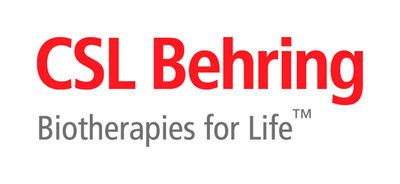Global biotherapeutics leader CSL Behring announced today that its investigational, plasma-derived hemopexin therapy (CSL889) received orphan drug designation from both the European Commission and the U.S. Food and Drug Administration (FDA) Office of Orphan Products Development for the treatment of sickle cell disease (SCD).
|
KING OF PRUSSIA, Pa., Nov. 2, 2020 /PRNewswire/ -- Global biotherapeutics leader CSL Behring announced today that its investigational, plasma-derived hemopexin therapy (CSL889) received orphan drug designation from both the European Commission and the U.S. Food and Drug Administration (FDA) Office of Orphan Products Development for the treatment of sickle cell disease (SCD). These designations grant special status to drugs and biological products intended to treat a rare disease, affecting less than 200,000 patients in the US or affecting not more than five in 10,000 people in the European Union. CSL889 is a form of plasma-derived hemopexin, an important, naturally occurring protein produced in the body whose levels are decreased in patients with SCD. Low levels of hemopexin have been associated with increased symptoms in SCD, particularly acute vaso-occlusive crises (VOC). VOC, the most common manifestation in SCD, are severe, debilitating episodes characterized by severe pain. There is no approved treatment for acute VOC, so episodes can only be managed with supportive measures such as fluids and pain killers. "Having treated hundreds of adults and children living with sickle cell disease over 30 years, I'm intensely aware of the need for novel and effective therapies, especially to relieve the tremendous pain from VOC," said Professor Greg Kato, who is leading the clinical development of CSL 889 at CSL Behring. "This newly granted orphan status recognizes the urgency for progressing new treatment options into the clinic." CSL Behring has two Phase I SCD programs poised to evolve the treatment paradigm for patients: CSL889 hemopexin therapy for the treatment of VOC and CSL200 lentiviral stem cell gene therapy for long-term disease management. About Sickle Cell Disease Sickle Cell Disease is a hereditary blood disorder in which red blood cells contain an abnormal type of hemoglobin, causing some of the cells to become distorted into a crescent, or sickle-shape. These misshapen red blood cells have difficulty passing through small blood vessels, slowing and blocking blood flow to areas of the body, damaging tissue that isn't receiving a normal flow of blood. Sickle Cell Disease can lead to episodes of severe pain, strokes, kidney, lung and heart problems, slow growth, vision problems and infection vulnerability. While frequency of Sickle Cell Disease varies globally, it is estimated to impact 100,000 people in the US and 1 in 10,000 persons in the European Union. About CSL Behring CSL Behring is a global biotherapeutics leader driven by its promise to save lives. Focused on serving patients' needs by using the latest technologies, we develop and deliver innovative therapies that are used to treat coagulation disorders, primary immune deficiencies, hereditary angioedema, respiratory disease, and neurological disorders. The company's products are also used in cardiac surgery, burn treatment and to prevent hemolytic disease of the newborn. CSL Behring operates one of the world's largest plasma collection networks, CSL Plasma. The parent company, CSL Limited (ASX:CSL;USOTC:CSLLY), headquartered in Melbourne, Australia, employs more than 27,000 people, and delivers its life-saving therapies to people in more than 100 countries. For inspiring stories about the promise of biotechnology, visit Vita CSLBehring.com/vita and follow us on Twitter.com/CSLBehring.
SOURCE CSL Behring |
||
Company Codes: Australia:CSL, OTC-PINK:CSLLY |





